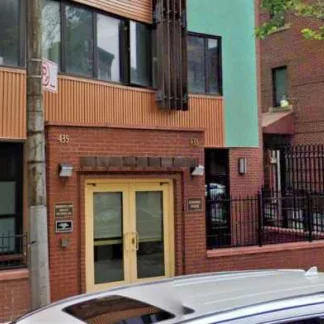Odyssey House Outpatient Services
Odyssey House NYC, a recognized name in the realm of addiction recovery, provide...
Greenhope Services for Women is a private rehab located in New York City, New York. Greenhope Services for Women specializes in the treatment of alcoholism, drug addiction, dual diagnosis, opioid addiction, and substance abuse.
Contact us for more information: (212) 996-8633

Connect with Greenhope Services for Women by calling their admissions team directly.
(212) 996-8633 Website Get DirectionsGroup therapy is any therapeutic work that happens in a group (not one-on-one). There are a number of different group therapy modalities, including support groups, experiential therapy, psycho-education, and more. Group therapy involves treatment as well as processing interaction between group members.
Trauma therapy addresses traumatic incidents from a client's past that are likely affecting their present-day experience. Trauma is often one of the primary triggers and potential causes of addiction, and can stem from child sexual abuse, domestic violence, having a parent with a mental illness, losing one or both parents at a young age, teenage or adult sexual assault, or any number of other factors. The purpose of trauma therapy is to allow a patient to process trauma and move through and past it, with the help of trained and compassionate mental health professionals.
Trauma therapy addresses traumatic incidents from a client's past that are likely affecting their present-day experience. Trauma is often one of the primary triggers and potential causes of addiction, and can stem from child sexual abuse, domestic violence, having a parent with a mental illness, losing one or both parents at a young age, teenage or adult sexual assault, or any number of other factors. The purpose of trauma therapy is to allow a patient to process trauma and move through and past it, with the help of trained and compassionate mental health professionals.
Odyssey House NYC, a recognized name in the realm of addiction recovery, provide...
Roberto Clemento Family Guidance Center is a public rehab located in New York Ci...
Acacia Network - Mrs. A's Place is a Medically Supervised Day Treatment Program....
Counseling Services - Outpatient is a private rehab located in Bronx, NY. Counse...